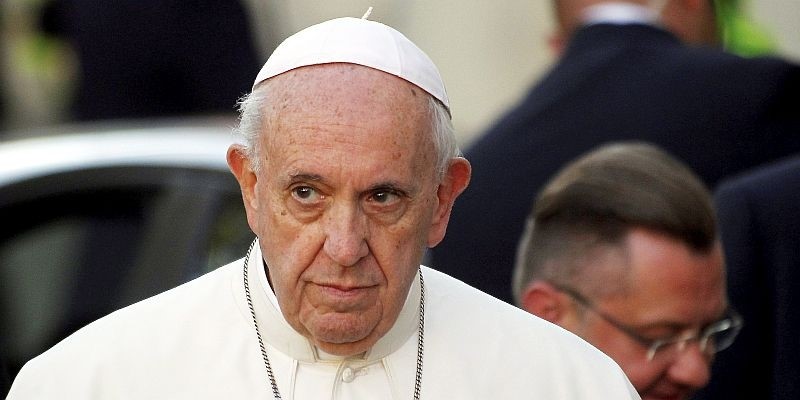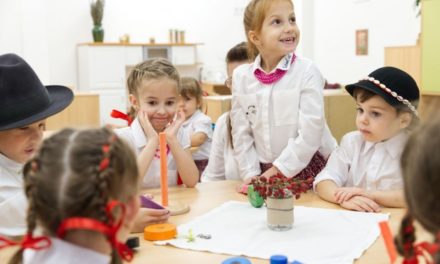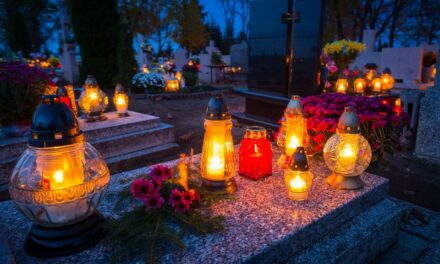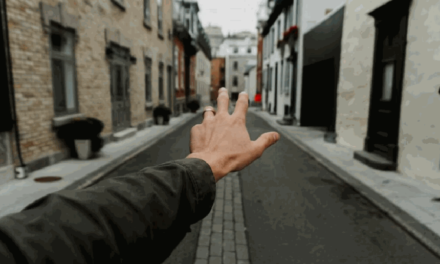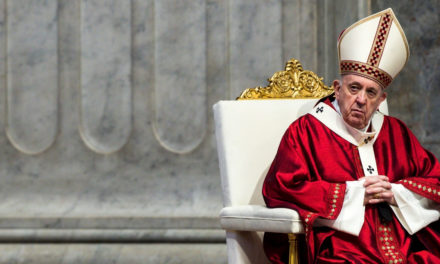But what is the real reason for this?
Everything the Pope says about migrants can only be understood in the context of his social and universal message. His expectations are greater than they seem: they demand a return to true freedom of political action.
No one can stem the flow of muscle, not even the state. No one can control the tide, no one can stop the waves, but we can learn to ride the waves. Given the demographic imbalance that exists between the young, poor and populous African countries and the much less young, much less poor and much less populous European countries, it would be foolish to pretend that we can stem the tide of migration. But it is possible to regulate, instead of being a passive victim: to examine asylum applications in the countries of origin, not in the territory of France; to control our borders in order to select immigrants based on criteria that meet both our duties - to welcome refugees fleeing war and poverty - and our opportunities and needs... as Pope Francis says.
Modification of our cooperation policy
We can also provide development aid to the countries of origin, but not with the aim of ingratiating ourselves with the corrupt local political elite, that it serves the interests of the industrialists (raw materials) and the French state (influence), but with the aim of ensuring that the people and to live with dignity in their own country without having to choose the path of exile to a European Eldorado of their dreams.
To do this, we should first of all radically change our cooperation policy, which until now consisted of paying for the enrichment of African kleptocrats and tyrants, "friends of France", with French taxpayers. The poor in rich countries paid the rich in poor countries while the poor in poor countries suffered and the youngest and bravest of them emigrated, mostly to neighboring African countries and to a lesser extent to Europe and France.
Financial extortion of countries of origin
This last point of what Pope Francis said is mostly ignored or even silenced by the media. His speech is actually coherent, consistent, if we consider what he has to say as a whole. The reception of migrants in distress corresponds to emergency measures, while the basic solution is the right not to emigrate, which the Pope often reminds us of. As they say in logistics, a distinction must be made between managing flows and managing stocks. The Pope's discourse on migrants is inseparable from his words on environmental protection, inclusion of the poorest and brotherhood. In other words, the other side of the Pope's speech about migrants is a speech about the consumer society and the culture of waste that accompanies it, encourages it and thrives on its soil.
Contrary to appearances, the Pope's message to political leaders is realistic and coherent...but it demands an awful lot.
That's why no one really wants to hear it, and that's why the media channels refrain from presenting it in its full context. Because it requires us to bitterly review the devil's bargains that our successive governments have made with regimes that profit from this uncontrolled immigration and use it either to financially blackmail France (Algeria, Tunisia, Turkey) or/and to promote the radicalization of Muslims. by destabilizing our society (Qatar, Turkey). This would mean that we would move away from the countries with which the large French groups do business and give up the privileged supply of raw materials.
Eradication of smuggling networks
Only at this price would the French state be able to implement a policy that eradicates the network of slave traders, human torturers and clandestine people smugglers, for which migrants would rather risk drowning in the Mediterranean than return to the hell of the Libyan desert...
In short, this would presuppose that the French state and those who have been at the helm for decades have the courage and savvy to make coherent political decisions to reclaim the means of our freedom of action. And this is exactly where the shoe squeezes.
After all, how do we accept and integrate migrants - as Pope Francis asks - when the French state is no longer able to integrate anyone, not even the sons of the Gauls? Schools no longer educate, but have become gigantic childcare facilities; military service was abolished; national heritage and culture are inherited only in old French families in a culturally advantageous position. Law enforcement forces are powerless, and it is sometimes impossible to take on a job that is far away due to transport costs. The fact that someone works is no longer an obstacle to not having to go to the soup kitchen to eat, and it no longer guarantees decent housing; and erasing our borders condemns us to helplessly suffer the events.
National and universal public good
Unfortunately, in France, public power has given way to inaction, and the greatest strength of our leaders is their power of inertia. The impotence that the French suffer and suffer every day at the national level, Pope Francis feels at the international level. However, there is a difference: the French feel sorry for this when they - rightly - think about their own fate, while Pope Francis when he thinks about the fate of migrants. He is right too. For the Holy Father, an emergency is the emergency situation, which for him is the fate of the most disadvantaged, especially when there are the most of them. By comparison, the situation of the French is less dramatic than that of the Africans. France is not the primary concern of the Pope, whose vision of problems and pastoral responsibility has a global dimension.
Astonishing? Not really. Pope Francis is not responsible for running the French state or managing France's internal affairs. He is doing his job.
What is shocking is that the French state and its successive political leaders have stopped doing their own job: working for the common good within the country's borders. On the other hand, it is quite normal that Pope Francis does not look at the public good from a strictly national, and especially not from a French, point of view. He examines the common good from the point of view of all humanity (migrants, environment, peripherals), because he is the pope of the Catholic - this term means universal - church and not of a Gallican church. In this capacity, he reminds us that we cannot look at our own destiny beyond our borders, especially regardless of the fate of our brothers and sisters living on the African continent. In Genesis, God asks Cain, "What have you done to [your brother]?" Christ's vicar reminds us that we have no right to answer like Cain: "...perhaps I am my brother's keeper?" (Square, 4)
Pope Francis is only fulfilling his duty to remind us of what God expects of us.
He expects us to love Him with all our heart, with all our soul, with all our mind, and to love our neighbor as ourselves. Well, our neighbor is someone who is close to us because he is close to us, not someone we would have spontaneously chosen. The one who is close to us at arm's length is the one whom the Holy Spirit has placed in our path. Christ comes in the form of our neighbor, which is sometimes called "the holiness of the brother".
Let's end political impotence
If we feel that we are caught in a painfully tight grip between the evangelical calls of Pope Francis and the paralyzing political impotence that prevents even the slightest solution from being found, we will not find a solution by accusing Pope Francis of politicizing too much, of not loving France, he is simply irresponsible .
Breaking the thermometer will not cure the fever.
The solution lies in using the democratic tools at our disposal – the various elections that allow us to select and sanction political leaders – to elect leaders who are willing and determined enough to end the crippling and desperate political impotence. Only in this way will we be able to accept and integrate our refugee brothers and sisters in a viable, responsible and evangelical way, because - finally! - we will have the tools for it.
Translated by: Dr. Fedineczné Katalin Vittay
Source: fr.aleteia.org/zarandok.ma
Featured image: MTI/EPA/Reuters pool/Guglielmo Mangiapane

